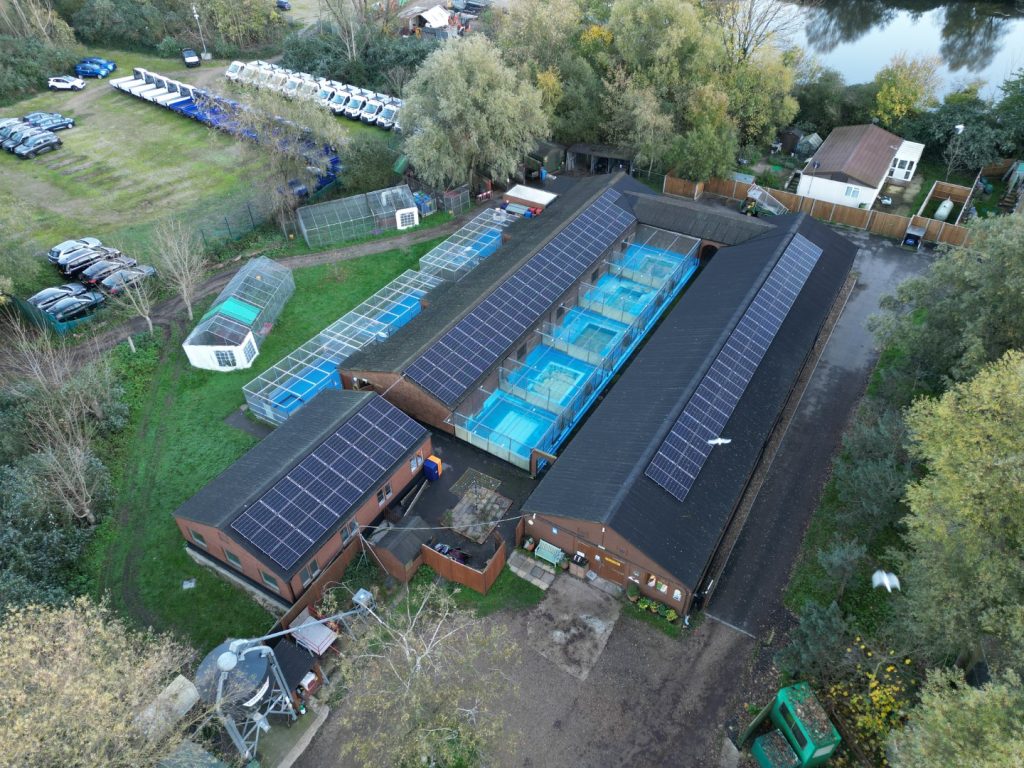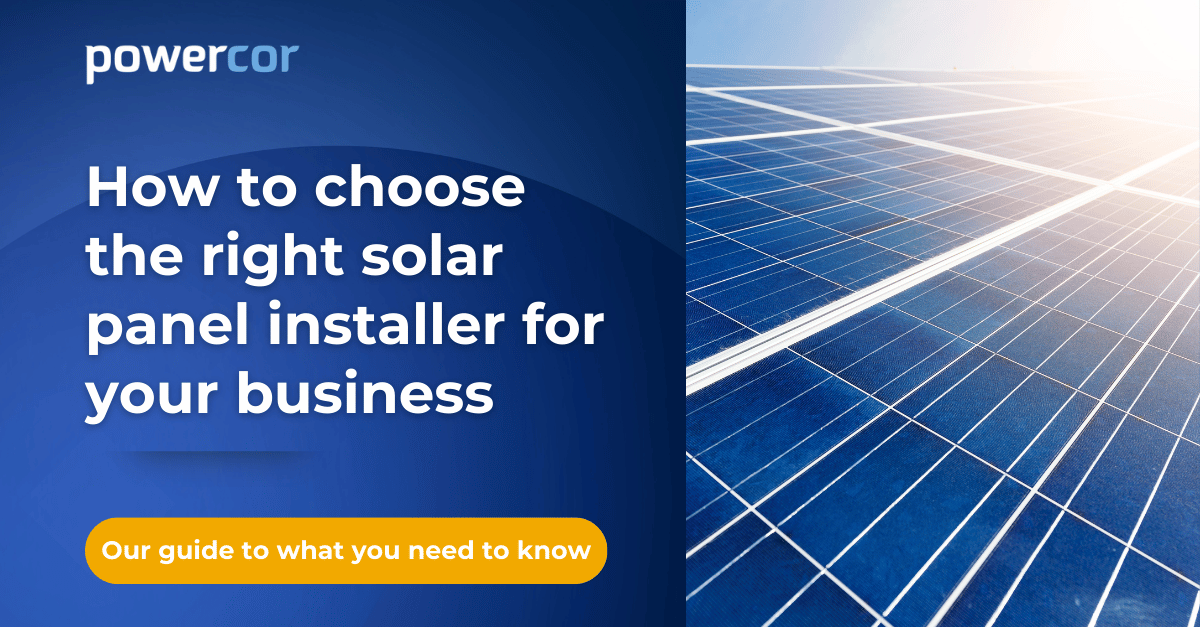The UK has seen a surge in solar panel installations as homeowners and businesses look to cut energy costs and reduce their carbon footprints. However, choosing the right solar panel installer for your business is crucial to ensure that your investment delivers maximum benefits. A good installer can mean the difference between years of hassle-free energy savings and ongoing issues with underperforming equipment. This guide will help you with the process of finding a reliable and skilled solar panel installer in the UK.
The importance of a quality solar panel installer
Solar panels are a long-term investment, with systems designed to last 25 years or more. While the panels themselves are important, proper installation plays an equally significant role in their performance and longevity. A professional installer ensures that the system is safe, optimally positioned for sunlight, and integrated seamlessly with your home’s electrical setup. Poor installations, on the other hand, can lead to electrical failures, roof damage, or systems that underperform, resulting in lost savings and costly repairs.
Additionally, quality installation is essential for claiming warranties and adhering to insurance requirements. Manufacturers often stipulate that their equipment must be installed by certified professionals. By choosing a reputable installer, you safeguard your investment and gain peace of mind.
Finding solar panel installers in your area
The first step in your search is to identify installers operating in your region. In the UK, you’ll find a mix of national companies and local specialists. Local installers often provide more personalised service and are familiar with the specific challenges and regulations of your area. For instance, they may have insights into common weather-related considerations or local council requirements.
You can start by searching online for solar installation companies near you. Websites such as the Microgeneration Certification Scheme (MCS) directory are excellent resources. Word-of-mouth recommendations are another reliable option. Business associates, friends, or family members who might know of a quality installer can sometimes offer valuable insights and recommendations based on their experiences.
Checking certifications and qualifications
Certifications are a key indicator of an installer’s professionalism and expertise. The Microgeneration Certification Scheme (MCS) is the gold standard for solar installers. Any installer operating under the MCS has been vetted for technical competence and adherence to industry standards. Choosing an MCS-accredited installer is essential, as many financial incentives, such as the Smart Export Guarantee (SEG), require MCS certification.
Beyond MCS, you might also look for accreditation from organisations like the Solar Trade Association (STA). These endorsements demonstrate a commitment to customer service, ethical practices, and ongoing professional development. Additionally, verify that the installer holds public liability insurance and employer’s liability insurance, which protect both your property and the workers involved in the project.
Assessing experience and expertise
Experience is a crucial factor when choosing a solar panel installer. Ask potential installers about their track record and the number of installations they’ve completed. An experienced installer is more likely to have encountered a range of challenges and will know how to handle site-specific issues such as shading, unusual roof structures, or limited space.
Make sure the installer has experience with the type of system you’re planning to install. For example, if you’re considering battery storage or an integrated solar roof, confirm that they’ve handled similar projects before. Additionally, enquire about their familiarity with well-regarded manufacturers, like SolarEdge, and their understanding of local weather conditions, which can impact panel positioning and performance.
Reviewing portfolios of solar installations
A reputable installer should be able to provide examples of their previous work. Reviewing portfolios can give you an idea of the quality and style of their installations. Pay attention to projects that are similar to your own in terms of property type, roof size, or system complexity. You may also ask for references from previous clients to hear about their experiences firsthand.
Powercor has many examples of large and complex solar installations, such as this one at The Swan Sanctuary in Shepperton, Surrey.

When reviewing past work, look for signs of attention to detail. Neat cable management, well-aligned panels, and robust mounting structures are all indicators of a high-quality installation. Don’t hesitate to ask questions about how they handled specific challenges or customised solutions for unique situations.
Reading reviews, testimonials and awards
Online reviews can provide valuable insights into an installer’s reliability and customer service. Websites like Trustpilot, Google Reviews, and Which? Trusted Traders are good places to start. Pay attention to comments about punctuality, communication, and how the installer dealt with any problems.
While reviews can be helpful, it’s important to approach them critically. Look for consistent patterns in feedback rather than focusing on isolated comments. Be cautious of reviews that seem overly positive or negative, as these might not always be genuine.
Look to see if the installer has won any industry awards. While this doesn’t guarantee quality workmanship, it does imply that the installer is established in their industry with a strong reputation.
Understanding pricing and quotes of solar panel installers
The cost of solar panel installation in the UK varies depending on system size, complexity, and location. When comparing quotes, look beyond the bottom line. A good quote should break down costs for equipment, labour, and additional services such as scaffolding, permits, or monitoring systems. It should also clearly state any potential extra charges.
Beware of quotes that seem unusually low, as these may indicate subpar equipment or rushed installations. Conversely, higher quotes may reflect the quality of the equipment being used – so it’s always worth enquiring further.
Evaluating warranties and after-sales support
Warranties are a critical component of your solar investment. A trustworthy installer should offer guarantees on both equipment and workmanship. Equipment warranties typically range from 10 to 25 years, covering the solar panels, inverters, and batteries. Workmanship warranties, on the other hand, protect against installation-related issues and usually last for 1 to 10 years.
After-sales support is equally important. Ask the installer about their approach to maintenance and whether they offer annual servicing. Knowing you can rely on your installer for future support adds an extra layer of security.
Assessing your solar installer’s customer service
The quality of customer service you receive during your initial interactions can be a good predictor of your overall experience. A professional installer should respond promptly to your enquiries, explain their processes clearly, and answer your questions patiently. Look for companies that prioritise transparency and are willing to discuss potential challenges upfront.
Compliance with local regulations
In the UK, solar panel installations must comply with local council regulations and building codes. A good installer will handle compliance on your behalf, ensuring that all necessary permits are obtained and that your system adheres to planning requirements. This is particularly important if you live in a listed building or a conservation area, where additional restrictions may apply.
Pre-installation site assessment
A thorough site assessment is a crucial step in the installation process. The installer should visit your property to evaluate factors like roof orientation, shading, and structural integrity. This allows them to design a customised system that maximises energy generation while addressing any potential challenges. Avoid installers who skip this step or offer quotes without visiting your property.
FAQs about finding a quality solar panel installer for you business
- Why is MCS certification important in the UK? MCS certification is essential for ensuring that your installation meets industry standards. It’s also required for accessing financial incentives like the Smart Export Guarantee (SEG).
- How do I verify an installer’s credentials? You can check an installer’s MCS accreditation online or ask them to provide proof of certification and insurance.
- What is the typical cost of solar panels in the UK? The average cost for a domestic system ranges from £5,000 to £8,000, depending on the size and type of system. For businesses and schools, the roof space and system potential can be larger and the cost will rise proportionally
- What warranties should I expect? Look for equipment warranties lasting 10-25 years and workmanship warranties of at least 1-10 years.
- How long does the installation process take? This very much depends on the size and complexity of the site, but expect installation to take at least a week







